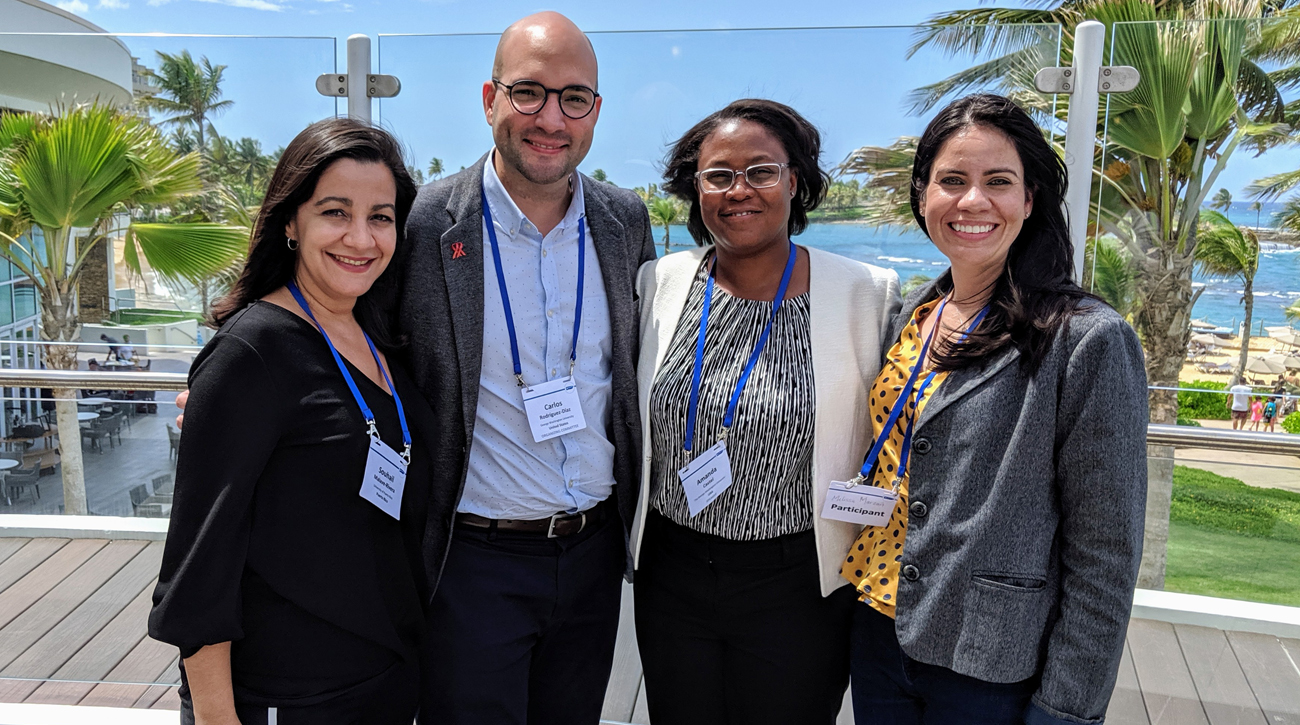The District of Columbia Center for AIDS Research (DC CFAR), based at Milken Institute School of Public Health, recently launched a project aimed at strengthening Puerto Rico’s response to the HIV epidemic.
Puerto Rico has one of the highest HIV incidence rates in the United States. With funding from the National Institutes of Health (NIH), the project aims to establish a partnership between government, community and academic leaders to enhance Puerto Rico’s response to the HIV epidemic. As part of the project, researchers will assess the number and types of HIV tests performed in the last year and find out how often people at risk of HIV are referred to care that can prevent transmission.
San Juan, Puerto Rico’s capital city, is considered one of the HIV “hotspots,” a term given to 48 counties and Washington, D.C., that altogether account for more than 50 percent of new HIV cases in the U.S. Furthermore, nearly a quarter of HIV-positive men in San Juan are unaware of their status and thus can unknowingly spread the virus.
“This research project provides an opportunity to integrate good practices in advancing HIV services, and support the government and community-based organizations in Puerto Rico to end the HIV epidemic using local experiences and cutting-edge science,” said Carlos Rodriguez-Diaz, PhD, MPH, an associate professor of prevention and community health at Milken Institute SPH and the principal investigator for the project.
Rodriguez-Diaz is a Puerto Rico native whose work focuses on HIV care and prevention, sexual health promotion and health equity through actions in the social determinants of health. His plan to create a government-community-academic partnership in Puerto Rico is based on the design of the DC CFAR, which is a partnership among eight institutions across the District that represents 227 investigators. The work of the DC CFAR and this partnership has resulted in a 72 percent decline in new HIV diagnoses in the District over the last decade.
With the DC CFAR as a model, Rodriguez-Diaz and his team will help forging a partnership with representatives from the Puerto Rico Department of Health, scientists from the University of Puerto Rico and public health leaders in the community.
The team will learn more about the barriers to HIV testing so that people at risk, including men who have sex with men, can be tested. HIV testing can identify new cases of infection at an early stage so that prompt treatment can be started, Rodriguez-Diaz noted. In addition, testing and counseling can identify people at risk of contracting HIV so that they can be offered preventive care, such as Pre-Exposure Prophylaxis (PrEP).
The project is from the DC CFAR that recently received funding from the NIH to support research that will help implement the Trump administration’s initiative, “Ending the HIV Epidemic: A Plan for America.” Twenty-three institutions nationwide received funding to support the initiative, which aims to reduce new HIV diagnoses in the U.S. by 75 percent in five years and by 90 percent by 2030.
“Ending the HIV epidemic requires equitable participation from governments, scientists, practitioners, and communities,” Rodriguez-Diaz said. “This project could serve as an example of using science and practice to change the public health landscape and eliminate an epidemic affecting the most socially vulnerable.”


